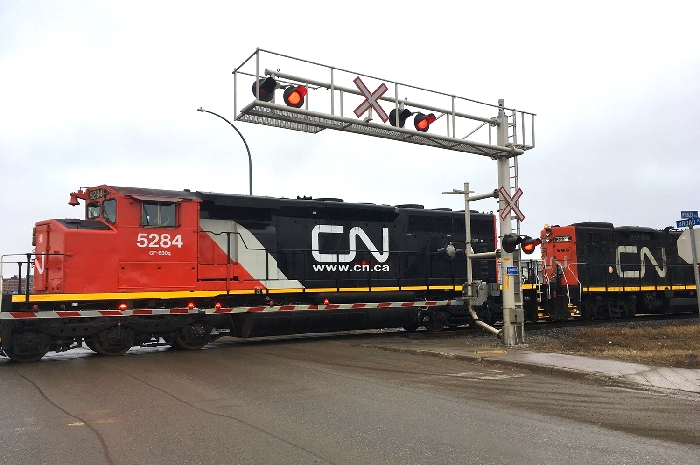CN Rail workers going back to work
Tentative deal reached, workers will be back on the job
November 27, 2019, 3:25 am


A tentative deal reached Tuesday morning has ended the week-long strike by 3,200 Canadian National Railway Co. conductors.
The Teamsters Canada Rail Conference said members will return to work by 6 a.m. local time on Wednesday, ending the longest rail strike in Canada in 10 years. Details of the deal, which must be ratified by union members, have not been released.
The return to work does not affect Nutrien's decision to close the Rocanville Mine for two weeks.
"The end of the strike is great news for farmers and the broader Canadian economy. It is also very good news for Nutrien as it will prevent further production slow-downs and shut-downs across our network," Will Tigley of Nutrien told the World-Spectator Tuesday morning.
"Given our reliance on rail to get our product to market, any outage has an almost immediate impact on our business.
"Despite our best efforts to manage through the disruption, the strike created significant backlog in our supply chain and resulted in lost export capacity that cannot be immediately recovered," Tigley added.
"In the case of Rocanville, the altered shipping patterns resulted in the site reaching containment and will still require the two-week downtime to get inventories balanced."
“I would like to thank our members for their incredible courage and solidarity,” said the president of Teamsters Canada, François Laporte. “I would also like to thank all the Teamster local unions from across different industries, all the labour organizations and members of the public who supported us on the picket line.”
CN said in a statement announcing the tentative agreement workers will start returning to work this afternoon, and trains will begin moving by tomorrow morning.
“We want to thank our customers for their patience and support and assure them that CN is preparing to resume full rail operations as soon as possible,” said Jean-Jacques Ruest, CN’s chief executive officer. I would also like to personally thank our employees who kept the railroad moving safely at a reduced capacity.
The union members, who work in locomotives and train yards, had been without a contract since July. Several months of talks assisted by a mediator had failed to resolve differences, which the union said included rest periods, benefits and CN’s use of remote controls to drive trains.
The strike on Canada’s largest rail network brought to a halt much of Canada’s export commodities, everything from wheat to potash. It also raised fears of a shortage of propane in parts of country, used to heat homes, power hospital back-up generators and by farmers to dry crops after harvest.
The federal government resisted increasing pressure to reconvene parliament and legislate an end to the strike. Instead, the government expressed its support for the collective bargaining process, and urged the company and the union to negotiate an end to the strike.
CN said it was able to run at about 10-per-cent capacity using qualified mangers as conductors, and requiring engineers to report for duty. The engineers are also Teamsters but covered under a separate collective agreement.
Nutrien said on Monday the strike caused the temporary shutdown of its potash mine in Rocanville.



































